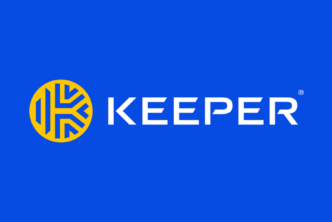Remote team management brings a lot of challenges. Time zone differences, cultural differences, lack of face-to-face communication – when not properly handled, all of this can seriously impact the remote team workflow. However, if you’re planning to build a remote team, you are lucky because you can use the advice and expertise of those who have successfully managed distributed teams for years. We’ve interviewed several leaders of remote teams and here’s the outcome:
- Sid Sijbrandij, CEO and Co-Founder at GitLab. Founded in 2011, GitLab is a San Francisco-based startup, the team of which is fully distributed across 45 countries. In his interview on managing remote teams, Sid Sijbrandij speaks of what makes remote work a success. Specifically, success depends on the people that you hire. Remote work is not for everyone, so the candidates should be ready to allocate their own time and set their own priorities properly.
- Ryan Hoover, founder of Product Hunt. Product Hunt is a community platform for people sharing, upvoting, and geeking out about the latest technologies. In the interview, Ryan talks about how to build the world’s #1 product launch platform with a globally distributed team. At the time of the interview, the team consisted of 20 members spread across 7 time zones and 3 continents, with the core of the team (5 members) based in San Francisco. Networking was the main hiring method that Ryan and his co-founders used. They never used any platforms or portals such as Upwork or Toptal, reaching out to Product Hunt members instead. Additionally, team members also brought their former teammates on board. According to Ryan, they hire people that are passionate about Product Hunt.
- Pierre Betouin, CEO of Sqreen. Sqreen is the security monitoring and protection platform that automatically prevents attacks before they impact your business. The company is based in two locations: San Francisco and Paris. In the interview, Pierre Betouin shares his recipe for a successful distributed team. When Sqreen was founded, the entire team was located in Paris while Pierre was located in San Francisco. At the time of the interview, 90% of the engineering & product teams were located in Paris, with 2-3 people working remotely, whereas most of the growth & operations teams are based in SF. The Paris team is quite autonomous and they do not need daily interactions with SF, that’s why time zone difference is not a big problem in this case.
- Nathan Resnick, Founder of Sourcify. Sourcify is a YC-backed sourcing platform that matches customers with pre-vetted factories overseas. In his interview, Nathan Resnick, founder of Sourcify, shares his recipe on successful remote collaboration experience. The company operates in two key outsourcing destinations – Asia (manufacturing) and Ukraine (software development). Operations, sales, and marketing are located in San Diego, Las Vegas, and Salt Lake City. According to Nathan, their biggest challenge is cultural differences, but he thinks that it’s possible to create the same dynamic in the office as anywhere in the world.
- Bryan Helmig, CTO and Co-founder of Zapier. Zapier is a workflow automation app. The company was founded in 2011 and has been remote since day 1. The team has put together “The Ultimate Guide to Remote Work”, which is available at their website and is of great help to those who want to start a remote team. In his interview, Bryan shares his thoughts and best practices on managing remote teams. For example, he elaborates on the so-called asynchronous communication and their internal tool “Async” that helps to efficiently manage the time zone differences.
Here are some other interviews that you may find helpful:
- Secret Recipes on Working With Remote Developers: an Interview With Craig Cannon
- Remote Teams Best Practices: Interview with Doist
- 23 Million Chess Players vs 100 Remote Developers: An Interview with CEO of Chess.com
- How HackerRank Reinvented the Recruitment Process
- Leveraging Unique Expertise with Remote Teams: Mobilize.net’s Journey
The best way to learn how to manage remote teams is from experts. We hope that our collection of interviews has motivated you to embrace remote collaboration. Good luck with your project!







